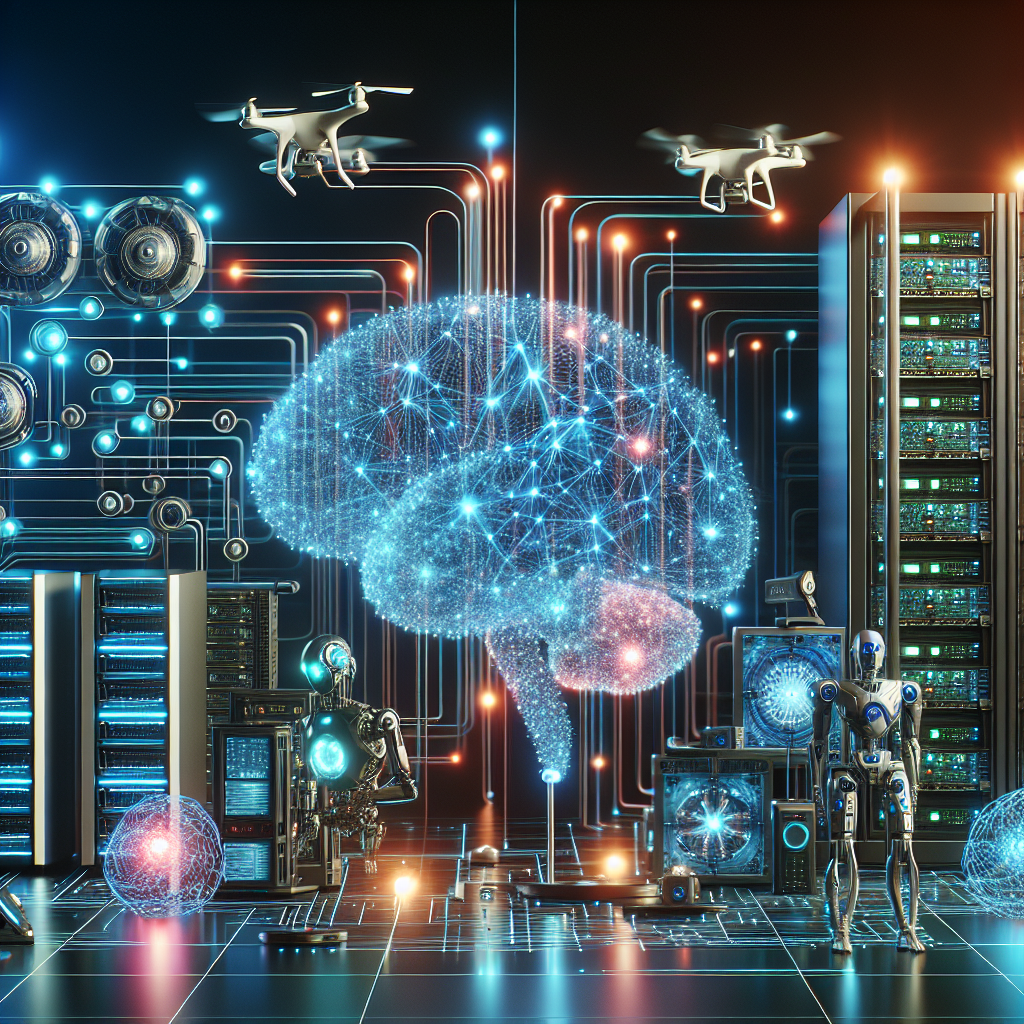Artificial Intelligence (AI) and Machine Learning are rapidly becoming the next frontier in technology, revolutionizing industries and changing the way we live and work. From self-driving cars to personalized recommendations on streaming platforms, AI and Machine Learning are transforming the world around us. In this article, we will explore the impact of AI and Machine Learning on various industries, the challenges they present, and the potential future developments in this exciting field.
AI and Machine Learning have already made significant advancements in industries such as healthcare, finance, and transportation. In healthcare, AI-powered tools are being used to analyze medical images, predict patient outcomes, and even assist in surgical procedures. In finance, Machine Learning algorithms are being used to detect fraudulent transactions, predict market trends, and automate trading processes. In transportation, self-driving cars are becoming a reality thanks to AI technology that enables vehicles to navigate roads and make decisions in real-time.
One of the key benefits of AI and Machine Learning is their ability to analyze vast amounts of data and identify patterns that humans may not be able to detect. This capability has led to innovations in personalized recommendations, predictive analytics, and automation of routine tasks. For example, streaming platforms like Netflix use AI algorithms to recommend movies and TV shows based on a user’s viewing history and preferences. E-commerce websites use Machine Learning to predict customer behavior and tailor product recommendations accordingly.
Despite the many benefits of AI and Machine Learning, there are also challenges and concerns that need to be addressed. One of the main challenges is the potential for bias in AI algorithms. If the data used to train Machine Learning models is biased, the resulting predictions and decisions may also be biased. This can have serious consequences, especially in fields like healthcare and criminal justice where biased algorithms can lead to unfair treatment of individuals. Ensuring that AI systems are fair and transparent is therefore crucial in order to build trust and confidence in these technologies.
Another challenge is the ethical implications of AI and Machine Learning. As these technologies become more powerful and pervasive, questions arise about their impact on privacy, security, and job displacement. For example, the use of AI in surveillance systems raises concerns about mass surveillance and invasion of privacy. The automation of jobs through AI and robotics also raises questions about the future of work and the need for retraining and upskilling of workers in the age of automation.
Despite these challenges, the future of AI and Machine Learning looks promising. Researchers and developers are constantly pushing the boundaries of what is possible with these technologies, leading to exciting new developments in areas like natural language processing, computer vision, and reinforcement learning. The potential applications of AI and Machine Learning are vast, ranging from personalized medicine to autonomous drones to smart cities.
As AI and Machine Learning continue to evolve, it is important for policymakers, businesses, and society as a whole to engage in discussions about the ethical, legal, and social implications of these technologies. Building a framework for responsible AI development and deployment will be crucial in ensuring that the benefits of AI and Machine Learning are maximized while minimizing the risks and negative impacts.
In conclusion, AI and Machine Learning are the next frontier in technology, with the potential to transform industries, enhance productivity, and improve the quality of life for people around the world. By addressing the challenges and concerns associated with these technologies, we can harness their power for the greater good and unlock new possibilities for innovation and progress.
FAQs:
Q: What is the difference between AI and Machine Learning?
A: AI is a broad field of computer science that aims to create machines that can perform tasks that typically require human intelligence. Machine Learning is a subset of AI that focuses on developing algorithms that can learn from data and make predictions or decisions without being explicitly programmed.
Q: How is AI used in healthcare?
A: AI is used in healthcare for a variety of purposes, including medical imaging analysis, patient outcome prediction, drug discovery, and personalized medicine. AI-powered tools can help healthcare providers diagnose diseases, optimize treatment plans, and improve patient care.
Q: What are some ethical concerns related to AI and Machine Learning?
A: Some ethical concerns related to AI and Machine Learning include bias in algorithms, privacy and security issues, job displacement, and the potential for misuse of AI technologies. It is important for developers and policymakers to address these concerns in order to ensure that AI is developed and deployed responsibly.
Q: What are some examples of AI applications in everyday life?
A: Some examples of AI applications in everyday life include virtual assistants like Siri and Alexa, personalized recommendations on streaming platforms like Netflix, fraud detection in banking systems, and autonomous vehicles. AI is becoming increasingly integrated into various aspects of our daily lives, making tasks more convenient and efficient.

